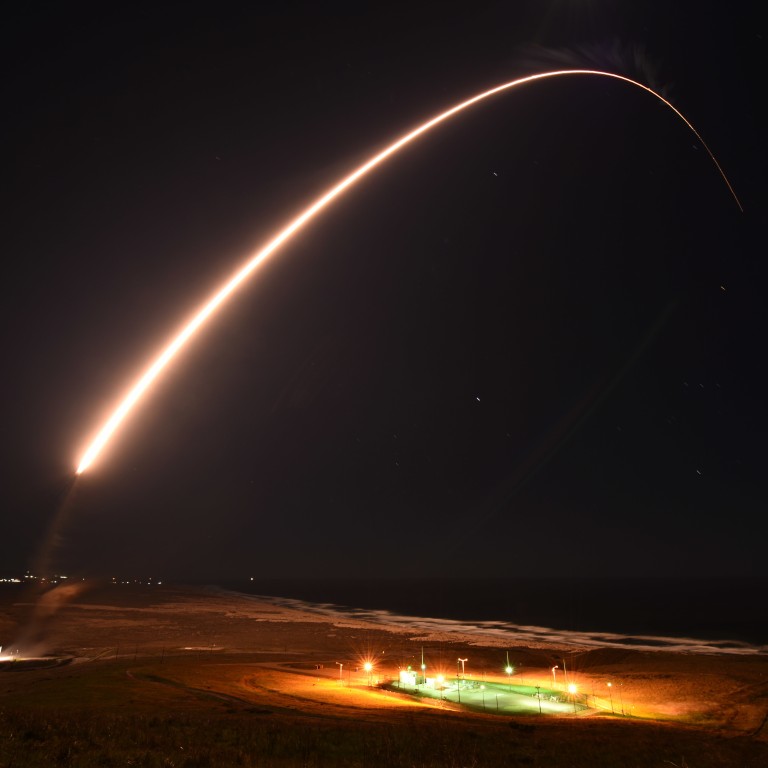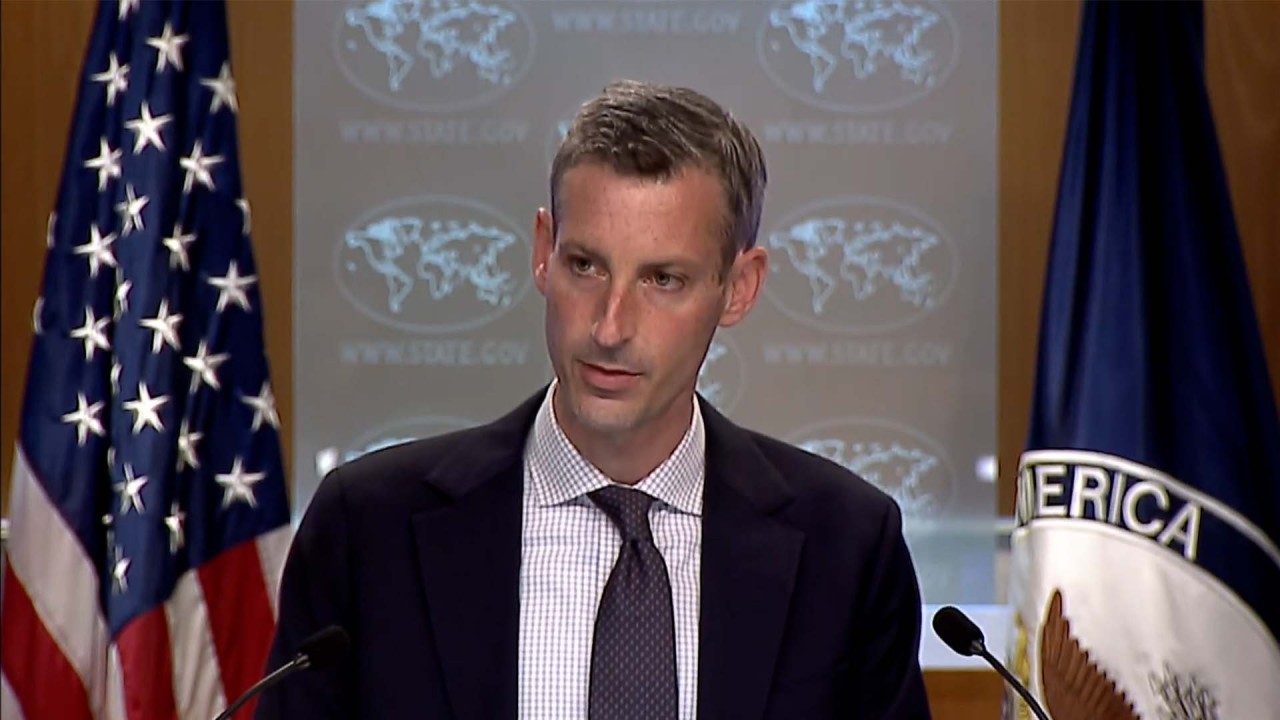
China ‘may be drawn’ into US-Russia nuclear competition
- As non-proliferation treaties have fallen by the wayside over the years, the three powers are modernising their capabilities
- A Chinese nuclear strategist has warned the unrestrained competition between Washington and Moscow could also bring in Beijing
As Cold War-era arms control regimes have fallen apart, the two nuclear superpowers and China have been modernising their forces and introducing “post-ballistic” missile technologies, according to Dr Luo Xi, research fellow at the China Arms Control and Disarmament Association.
“This unrestrained nuclear competition between the United States and Russia may complicate future bilateral arms control negotiations and potentially affect China’s cognition of its own nuclear retaliatory capabilities,” Luo said in a research report released on Thursday.

01:41
US ‘deeply concerned’ despite China denying it recently tested hypersonic nuclear missile
This is creating new military and escalatory risks and urgent measures to mitigate the situation must be adopted, she said.
Russia has chosen to continue its reliance on nuclear weapons as a key element of its national security strategy and is developing new and “exotic” nuclear weapons that are arguably not restricted under the terms of New START, Luo said. The US is also investing heavily in the replacement, modernisation and deployment of its nuclear weapons, she added.
Beijing’s nuclear strategy, with its “no first use” declaration, has relied on its ability to absorb a nuclear first strike and retaliate. But, according to Luo, as the emerging power catches up and becomes more involved in a triangular US-Russia-China competition, it is now increasing the survivability of its nuclear forces.
China may seek to close nuclear gap as US and Russia extend treaty
Chinese measures include the deployment of multiple warheads on missiles and experiments with hypersonic boost-glide vehicles to reduce warhead delivery times.
There were also reports in July that China was building “more than 200” suspected silos for intercontinental ballistic missiles in its vast northwestern desert region. Beijing dismissed these reports – saying such installations would be too vulnerable to attack and were based on obsolete technology – and described them as wind farm facilities.
The US and Nato have criticised China’s efforts to develop its nuclear capacity, and called on Beijing to take part in international nuclear arms control efforts, in particular to join trilateral negotiations with the US and Russia. Last June, during the New START talks, the American delegates placed Chinese flags on the negotiations table to highlight China’s absence from the discussion.
But Beijing has repeatedly refused to take part in any trilateral arms control talks and cited its far smaller nuclear arsenal compared with the other two powers.
China has never confirmed the exact number of its nuclear weapons but, according to Western estimates, has between 250 and 350 warheads. The US and Russia each have 4,000 in their military stockpiles.
Is China building a vast network of nuclear missile silos?
According to Luo, China is concerned that a trilateral arms control treaty with the US and Russia would be designed to weaken Beijing’s limited nuclear retaliatory capabilities, which rely in part on opacity and ambiguity to compensate for its smaller and more limited nuclear force.
“From Beijing’s perspective, any request for a trilateral arms control dialogue from the United States is more a litmus test of its campaign of maximum pressure towards China on a range of policy issues and an excuse for its withdrawal from the treaty for non-substantive reasons,” she said.
“China will participate in negotiations when involved in a broader set of negotiating partners such as France and the United Kingdom with similar levels of nuclear forces rather than being singled out.”

